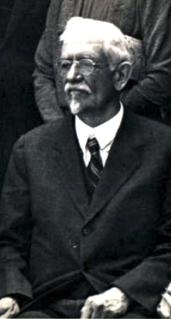A Quote by Elliott Sober
The indispensability argument says (roughly) that if you have ample reason to accept an empirical scientific theory that makes indispensable use of mathematics, and that theory entails that numbers exist, then you have ample reason to accept that numbers exist. The argument affirms the antecedent of this conditional, and concludes that you have ample reason to believe that numbers exist. What is striking about this argument is that it seems to show that the empirical reasons that suffice for accepting a scientific theory also suffice for accepting a metaphysical claim.
Related Quotes
The indispensability argument seeks to assimilate the epistemology of metaphysical statements to the epistemology of statements that are obviously empirical. I think it fails to achieve this goal. The argument does not refute the Carnapian thesis that scientific theories and metaphysical claims differ epistemologically - observations can provide evidence for the former, but not for the latter.
A certain kind of methodologically-minded philosopher of science is quick to read off metaphysical conclusions from features of scientific practice. Chemists don't derive their laws from fundamental physics, so reductive physicalism must be false. Biologists refer to natural numbers in some of their explanations, so numbers must exist. I think that this kind of thing makes for bad philosophy.
The supposed astronomical proofs of the theory [of relativity], as cited and claimed by Einstein, do not exist. He is a confusionist. The Einstein theory is a fallacy. The theory that ether does not exist, and that gravity is not a force but a property of space can only be described as a crazy vagary, a disgrace to our age.
Well, it [evolution] is a theory, it is a scientific theory only, and it has in recent years been challenged in the world of science and is not yet believed in the scientific community to be as infallible as it once was believed. But if it was going to be taught in the schools, then I think that also the biblical theory of creation, which is not a theory but the biblical story of creation, should also be taught.
I think Martin Luther correctly distinguished between what he called the magisterial and ministerial uses of reason. The magisterial use of reason occurs when reason stands over and above the gospel like a magistrate and judges it on the basis of argument and evidence. The ministerial use of reason occurs when reason submits to and serves the gospel…. Should a conflict arise between the witness of the Holy Spirit to the fundamental truth of the Christian faith and beliefs based on argument and evidence, then it is the former which must take precedence over the latter.
The claim is also sometimes made that science is as arbitrary or irrational as all other claims to knowledge, or that reason itself is an illusion. As Ethan Allen said Those who invalidate reason ought seriously to consider whether they argue against reason with or without reason; if with reason, then they establish the principle that they are labouring to dethrone. If they argue without reason, which they must do, in order to be consistent with themselves, they are out of reach of rational conviction, nor do they deserve a rational argument.
If you and I are not having a dialogue, when you're having an argument, the reason the argument happen is because we are not listening to each other. Then, the argument comes in, but if we truly listen instead of hearing, argument will not happen. Then, we'll empathize, and then once the empathy kicks in, you will be much more inclining with my viewpoint and I'll be inclining with your viewpoint, and that's what is missing in organizations.
Dawkins’s problem is that he doesn’t know the difference between probabilistic empirical theorizing and strict metaphysical demonstration, and thus misreads an attempt at the latter as if it were the former. That is not to say that Aquinas might not be mistaken at some point in the argument – though obviously I don’t think he is – but if you’re going to show that he is, you first need to understand what kind of argument he is giving, and thus what kind of mistake he’d be making if he’s made one at all.







































